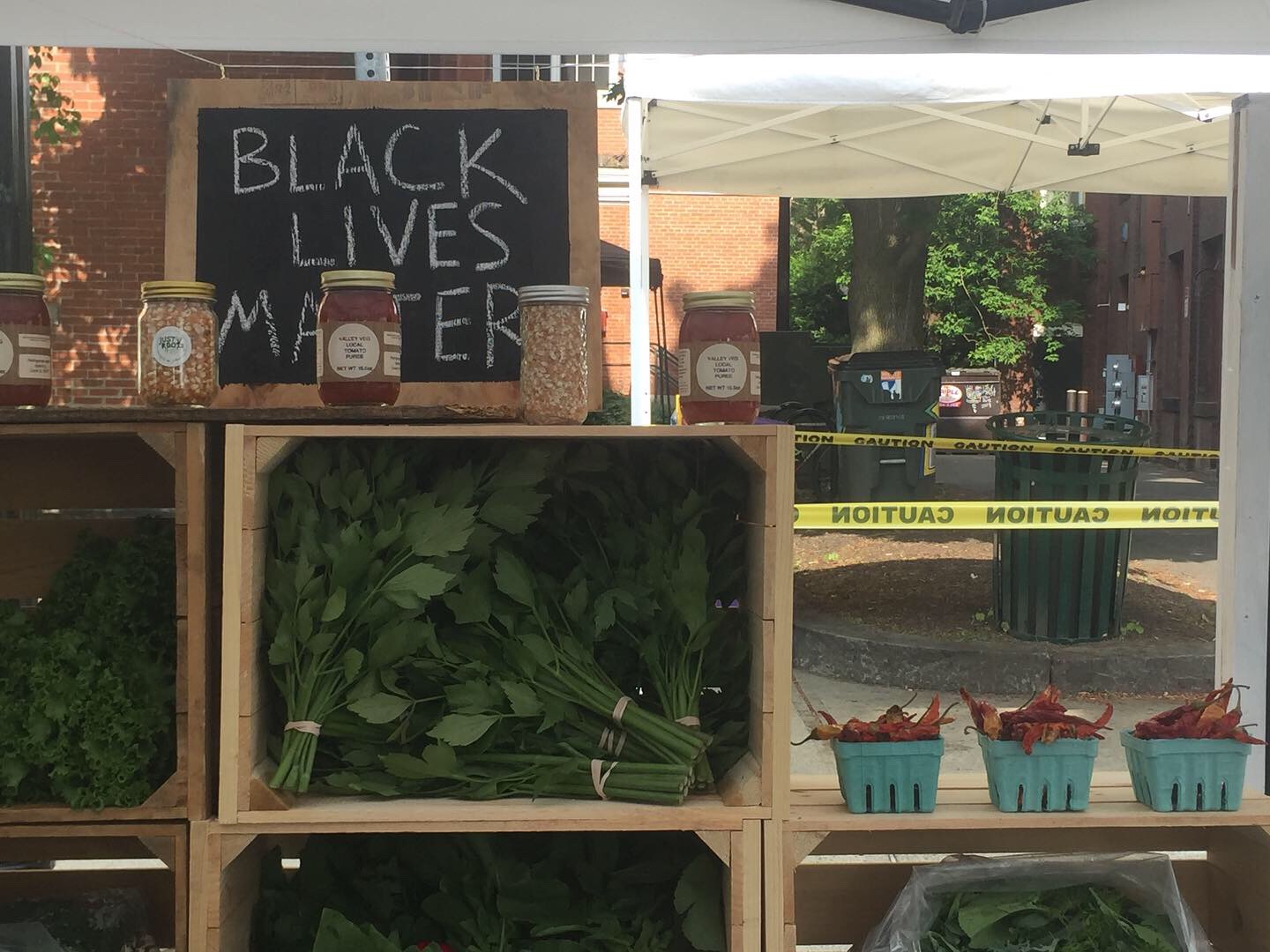
Our food system, like our country, was constructed within a systemically racist framework. As healthy food relies on healthy soil, a healthy food system relies on practices based on an understanding of this framework and a commitment to dismantling it. The murders of George Floyd and Brianna Taylor, the disproportionate impact of the COVID19 pandemic on BIPOC (Black, Indigenous and People of Color) majority communities, and the continuing rise of the far right have made it abundantly clear the need for deep racial equity work. White supremacy culture permeates the food system in ways that harm everyone. This needs to be acknowledged and addressed to build a truly inclusive, equitable movement.
Legislation
Written by a group of BIPOC leaders in the local food system, An Act promoting equity in Agriculture (S.41 and H.87) has been introduced for the 2023-2024 legislative session. This legislation would create a commission, made up of leaders representing BIPOC farmers and supportive organizations, to gather information and develop recommendations to create a more equitable local food system. If you are interested in becoming more involved with this Agricultural Equity Network please read more here and contact Norris Guscott at [email protected]
Creating Inclusive Farmers Markets Toolkit
In 2019 the Collaborative hosted a series of workshops for farmers market vendors and managers to discuss the challenges and opportunities resulting from changing demographics at farmers markets across the state. The Healthy Incentives Program, which began in 2017, enabled many people who hadn’t shopped at farmers markets to be able to purchase local produce. Frustration and conflicts arose among farmers market customers, vendors and managers, due to the inability to communicate in the same language, the increased foot traffic, different customs at markets, and racism.
These workshops were a first step to begin the conversation on how to make farmers markets welcoming spaces for all and reflect the diverse community in Massachusetts. From these workshops and key informant interviews emerged many recommendations for how farmers markets – and the customers, vendors, and managers – could make the spaces more welcoming for everyone.
Based on feedback from these workshops, which were led by Greg Watson, the Collaborative produced Creating A Culture of Inclusion at Massachusetts Farmers Markets.
This version of the Toolkit is just a first step. We encourage readers and users of this resource to offer suggestions for additions and changes so that we can build on and improve it over time.
Tools and suggestions include thoughts on how to better:
For more information, please contact Kristina Pechulis at [email protected].
Resources
Here are a few resources to deepen your knowledge of structural racism in the food system:
DEI Consultants
The Collaborative has heard a deep desire to begin or deepen racial equity work within food system organizations and the local food movement more broadly. This is intended to be a non-exhaustive resource for food system organizations looking to work with DEI consultants. Consultants can assist organizations in addressing and dismantling white supremacy culture in their work and relationships. We hope this is a helpful resource as you begin, continue, or deepen your organization’s antiracist journey.
For more information, please reach out to these consultants directly.